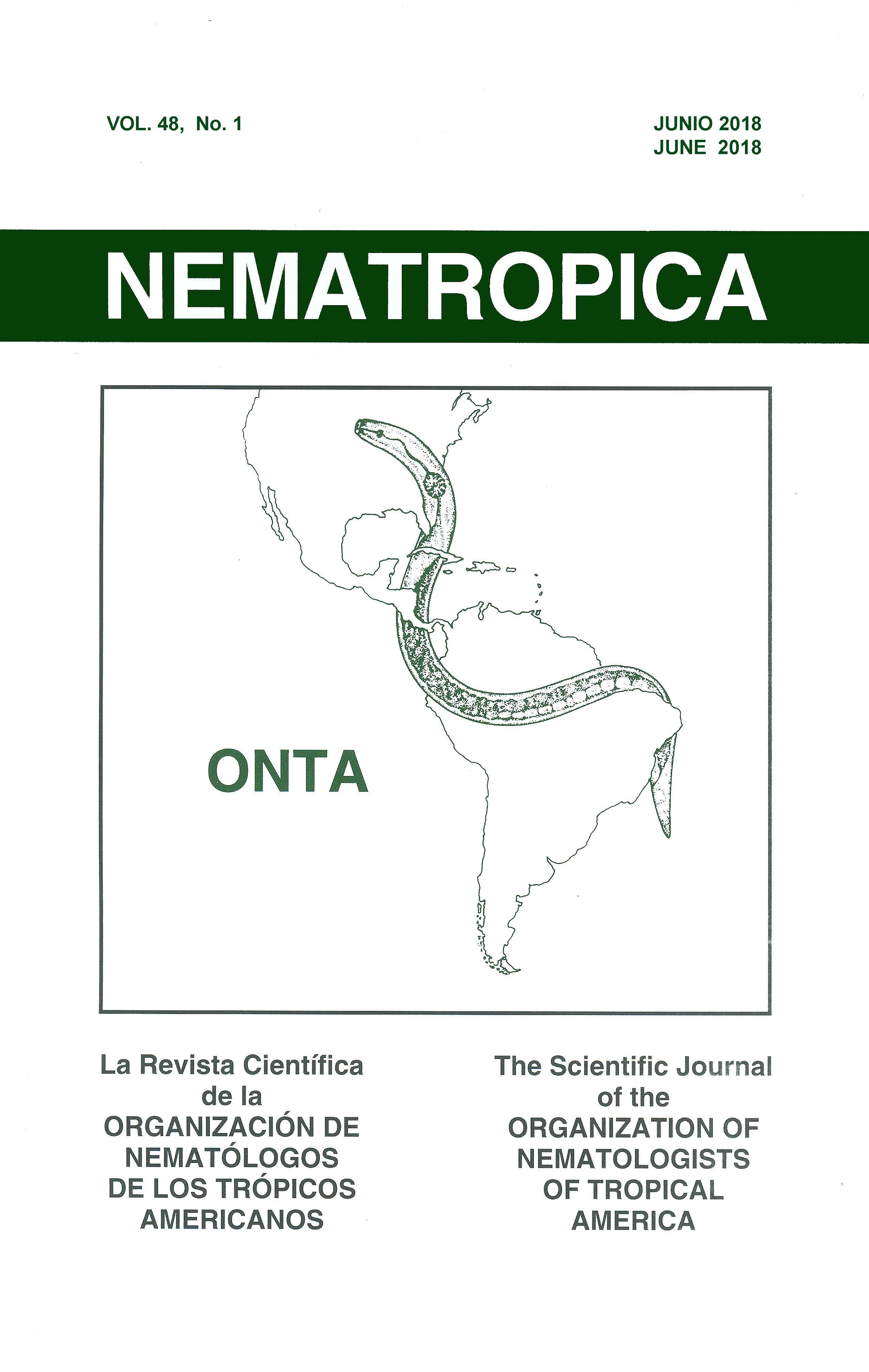ROOT ENDOPHYTIC STATUS OF WEST AFRICAN BIOCONTROL AGENTS AND IMPLICATIONS FOR ROOT-KNOT NEMATODE MANAGEMENT
关键词:
Benin, biological control, Meloidogyne spp., nematophagous fungi, vegetables摘要
The potential of four fungal biocontrol isolates (Trichoderma asperellum T-12, Pochonia chlamydosporia Pc-1, Kuklospora kentinensis BEN302, Aspergillus allahabadii BEN03) from West Africa to endophytically colonize tomato plants and provide in planta protection against root-knot nematodes (Meloidogyne spp.), was assessed in pots in the greenhouse. Colonization assessment at 11 wk after inoculation indicated that all the fungal isolates were able to internally develop and colonize tomato roots. The root dip treatments with the fungi led to significant inhibition of root-knot nematode reproduction, juvenile hatching, and root galling damage. Pre-planting treatment with T. asperellum T-12 showed the greatest nematode control, reducing root galling severity and nematode reproduction by 47% and 67%, respectively, and significantly inhibiting egg hatch by up to 85%, compared to the control. Endophytic protection by the individually inoculated fungal isolates also led to significantly improved tomato growth of shoots and roots. Such in planta host plant nematode suppression lends itself to novel, cost-effective, and environmentally suitable pest management options that can be efficiently integrated into seedling production systems. This study provides strong evidence and justification for exploring other mechanisms such as systemic effects of the fungi and, in particular, the effect of fungi on reducing egg hatching.

